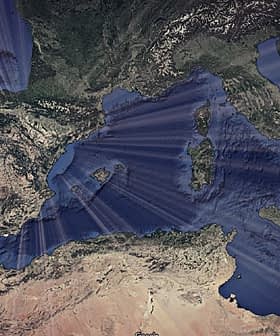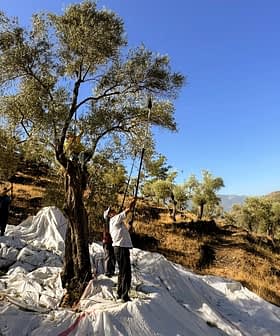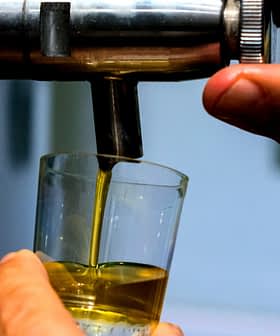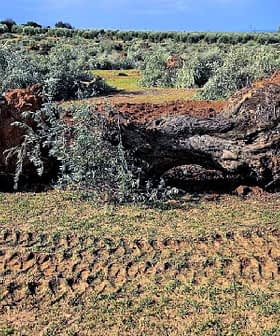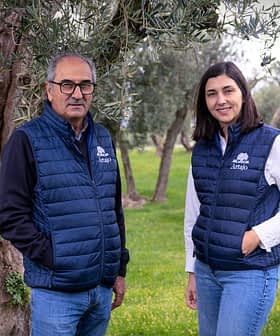Agricultural Groups Call on Spanish Government to Step Up Climate Change Response
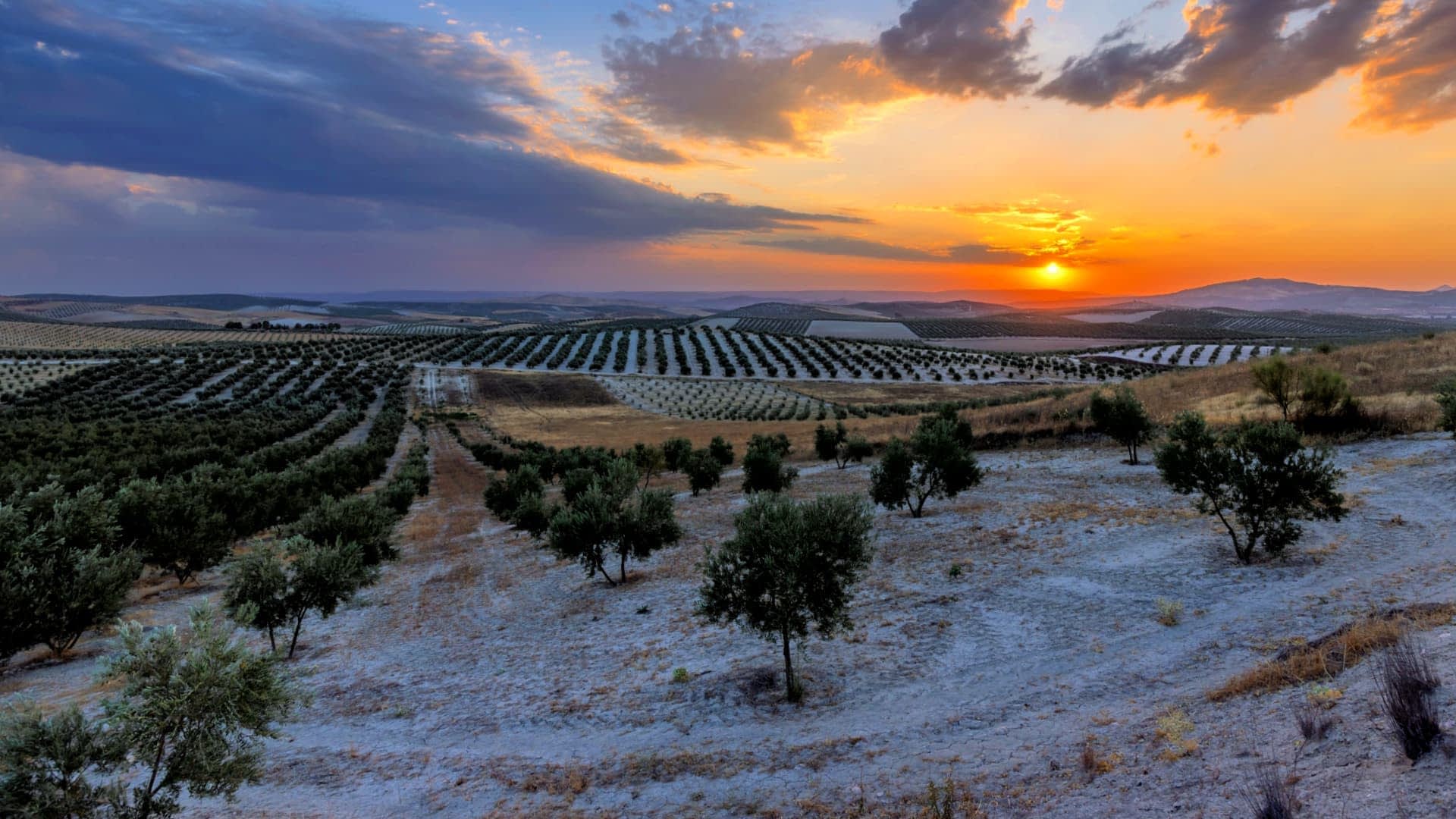
The Spanish government has been criticized by COAG for reducing funding for agricultural insurance in the 2024 budget, despite the importance of this tool in combating the effects of climate change. The government has also been urged to focus more on addressing the current climate crisis, as rising temperatures and heatwaves are impacting olive oil production and prices in Spain.
The Coordinator of Agriculture and Livestock Organizations (COAG), a farmers’ union, has admonished the Spanish government for reducing funding for agricultural insurance in its December 2023 budget, a significant tool used to fight the effects of climate change.
“The Ministry of Agriculture has turned a deaf ear to the requests of the sector and, ignoring the effects of climate change in the countryside, has cut 21 percent in the insurance budget for 2024, going from €358 million in 2023 to the scarce €284 million for the new year,” said Pedro García, COAG’s head of agricultural insurance.
The current climate situation is very different from before due to its increasing impact on olive oil production. If the weather doesn’t change, olive oil prices will continue to rise.
Although Decree-Law 8/2023 adopts some measures to alleviate the effects of drought, critics said it has not taken into account the importance of agricultural insurance as the primary risk management tool for farmers and ranchers.
According to Juan Vilar, chief executive of olive oil and agricultural consultancy Vilcon, the government should focus more on addressing the current climate crisis.
See Also:IOC Leader Focuses on Expanding Cultivation, Fighting Climate Change“The current climate situation is very different from before due to its increasing impact on olive oil production,” he told Olive Oil Times. “If the weather doesn’t change, olive oil prices will continue to rise.”
In Spain, extra virgin olive oil prices at origin hit record highs of €8.988 per kilogram, a 68 percent increase compared to last year, according to Infaoliva’s price observatory.
Overall, according to the European Commission, olive oil prices have risen 75 percent across the European Union since January 2021.
Meanwhile, data from Spain’s State Meteorological Agency (Aemet) show a massive increase in heatwaves in Spain since 2015.
For example, Spain experienced an unprecedented 41 days of extreme heat between June and September 2022. In 2023, there were four significant heatwaves in succession, totaling 24 days. According to Aemet, most of Spain only had rain in June.
“This year will be the longest and driest, according to meteorologists and international agencies, such as NASA,” Vilar said. “However, it will likely rain a lot in spring here in Spain. According to weather forecasts, we can expect 200 liters of rain per square meter. If that occurs, we can expect a harvest of 1.3 to 1.4 million tons of production in Spain for the next season.”
“With the current climate being unusually warm for winter, at 16 ºC in January, this is terrible for the trees, which mistake the current weather for spring,” he added. “As a result, these trees are already flowering. If the weather now turns and temperatures drop, the fruit could die. This phenomenon is called meteoropathy, where a change in the weather does not align with the natural rhythm of the environment.”
Vilar argued that Spain has plentiful water resources, and the government must invest in better protecting and utilizing them for agriculture and domestic consumption.
“We need artificial lakes, reservoirs, desalination plants for seawater, and a way to clean up black water from the cities to improve water availability for agriculture and human consumption,” he said. “The government needs to do more to improve the current situation.”
This includes defining specific strategies for each region, where water needs and availability differ, and one uniform plan would fail to meet specific needs.
“We have to think about sustainable strategies,” Vilar said. “The government is defining policies to improve the situation but needs to create infrastructure, a proper structure with practical steps. This takes investment and mitigation through insurance, which is already long overdue.”
See Also:Water Efficiency, Sustainability Must Go Hand in Hand in the Olive GroveIn July 2023, Maria José Caballero, the head of rapid response at Greenpeace Spain, warned that Spain is getting hotter.
“Projections indicate that if Spain does not severely cut the emissions that cause global warming, the country will become hotter, drier, more arid and fire-prone,” she said.
While the Spanish Sustainability Observatory also noted that Spain achieved a significant five percent reduction in its greenhouse gas emissions in 2023, analysts are calling for more practical steps against the threat of climate change.
Cristina Bernal Aparicio, a disaster and risk management expert, noted that “reducing carbon emissions is no longer enough to reduce the effects of climate change.”
She added that “the base for climate change adaptation in Spain is not enough” and that the country is “not ready for future hazards and the impacts of climate change,” citing a 2019 report on local climate change policies that found less than 30 percent of municipal governments – home to 60 percent of the population – have made climate change adaptation plans.
“It is difficult because the local community needs a lot of money to cope with environmental changes,” Vilar said. “Local farmers need government backing. Without government support, there is no way to mitigate the impact of the climate crisis.”
“The law is under the government,” he added. “Local farmers can save water but cannot do anything else. They cannot create an artificial lake or take water from the sea; it is too expensive.”
Insurance can play a protective role in mitigating the negative macroeconomic and welfare impact of catastrophes and climate change disasters, including flooding and drought, according to a 2021 study by the European Insurance and Occupational Pensions Authority (EIOPA).
“Although around 30 to 35 percent of Spanish olive groves have irrigation, 65 percent do not,” Vilar said. “They do not have the infrastructure for irrigation. The 35 percent that are irrigated do not have enough water due to water scarcity. So, 100 percent of olive groves do not have water unless it rains.”
“In Spain, there is not enough water to live daily,” he added. “Seville [the Andalusian capital], at the moment, has severe restrictions. In Seville, these water restrictions mean that water usage has been reduced to 21 percent in the southern part. Things will become more difficult in the summer, especially if there is insufficient rain in the spring.”
According to COAG, ” the damages are greater, the guarantees are lower, and the costs to the sector are higher” due to the impacts of climate change on Spain in the past few years.




